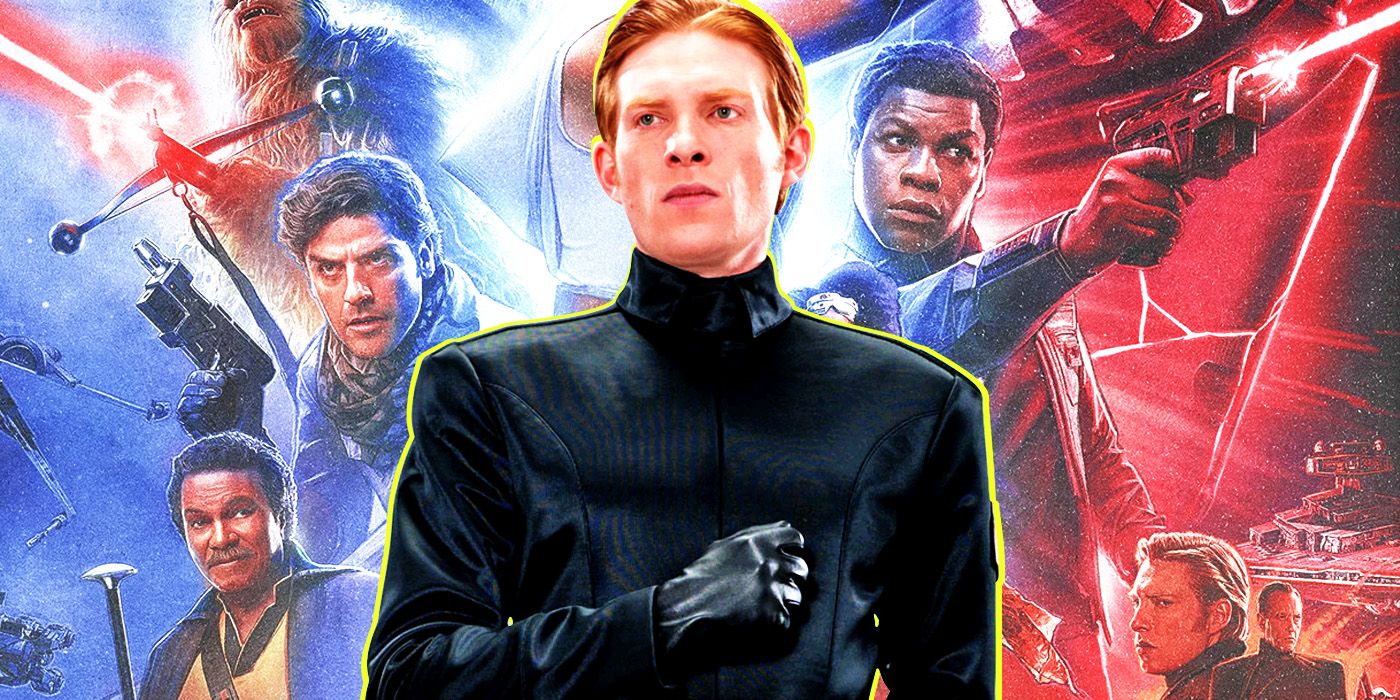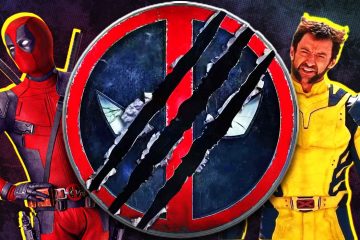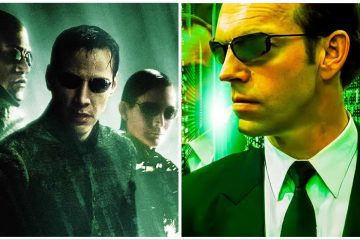One of the most common complaints about the Star Wars sequel trilogy is the seeming lack of a coherent vision for the larger story. If true, this merely puts the sequels on par with the original three films, as George Lucas was constantly revising and reworking the story as he made the trilogy happen. Yet, the character arcs that are present are a bit awkward, in large part because of the narrative timing of the stories. Nowhere is this more apparent than with General Armitage Hux who went from fanatically loyal First Order officer to traitor, working as a spy for the Resistance.This choice for the character is cleverer than most critics give credit for, and not just because of how it ties into Finn and the other Stormtroopers who defected. They are “traitors” for laying down their arms and joining the Resistance, at least in Hux’s eyes. However, Hux doesn’t see himself as a traitor but, rather, the savior of the First Order after the fall of Snoke. Despite their decisive galactic victory, the First Order is not stronger while the Resistance is rebounding with new tricks like hyperspace skipping to stay a step or two ahead of them. This is the reason that General Hux turns spy for the Resistance. As he said in the film, he’s not trying to destroy the First Order, he’s trying to stop Kylo Ren from doing that.Hux was fanatically loyal to Supreme Leader Snoke, perhaps because, like Admiral Sloane, he protected him. When he and Kylo Ren crashed on a planet after their shuttle was sabotaged, he taunted Ren by comparing him to Darth Vader. When Kylo threatened to kill him, Hux invoked Snoke’s eventual punishment, causing the dark Jedi to relent. Hux murdered most of his rivals in the First Order, but Kylo Ren was likewise protected by the Supreme Leader. Along with overseeing the training of Stormtroopers, Hux was eventually given command of Starkiller Base.
One of the most common complaints about the Star Wars sequel trilogy is the seeming lack of a coherent vision for the larger story. If true, this merely puts the sequels on par with the original three films, as George Lucas was constantly revising and reworking the story as he made the trilogy happen. Yet, the character arcs that are present are a bit awkward, in large part because of the narrative timing of the stories. Nowhere is this more apparent than with General Armitage Hux who went from fanatically loyal First Order officer to traitor, working as a spy for the Resistance.
This choice for the character is cleverer than most critics give credit for, and not just because of how it ties into Finn and the other Stormtroopers who defected. They are “traitors” for laying down their arms and joining the Resistance, at least in Hux’s eyes. However, Hux doesn’t see himself as a traitor but, rather, the savior of the First Order after the fall of Snoke. Despite their decisive galactic victory, the First Order is not stronger while the Resistance is rebounding with new tricks like hyperspace skipping to stay a step or two ahead of them. This is the reason that General Hux turns spy for the Resistance. As he said in the film, he’s not trying to destroy the First Order, he’s trying to stop Kylo Ren from doing that.
Hux was fanatically loyal to Supreme Leader Snoke, perhaps because, like Admiral Sloane, he protected him. When he and Kylo Ren crashed on a planet after their shuttle was sabotaged, he taunted Ren by comparing him to Darth Vader. When Kylo threatened to kill him, Hux invoked Snoke’s eventual punishment, causing the dark Jedi to relent. Hux murdered most of his rivals in the First Order, but Kylo Ren was likewise protected by the Supreme Leader. Along with overseeing the training of Stormtroopers, Hux was eventually given command of Starkiller Base.
#Star #Wars #Loyal #General #Hux #Turned #Spy #Resistance
Note:- (Not all news on the site expresses the point of view of the site, but we transmit this news automatically and translate it through programmatic technology on the site and not from a human editor. The content is auto-generated from a syndicated feed.))



